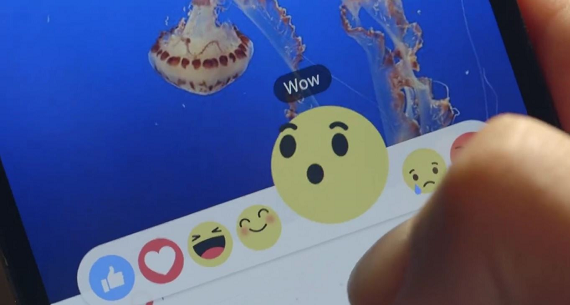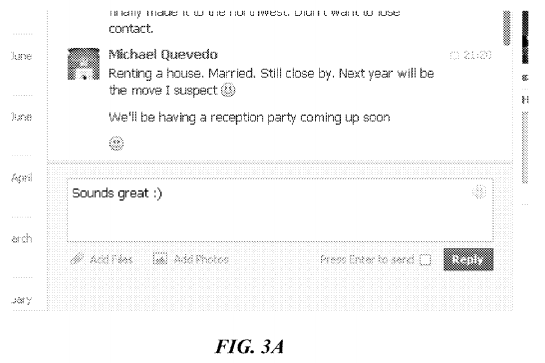

It was only recently that Facebook expanded out its roster of personalized emoticons, called Reactions, to let its users finally go beyond the simple “Like.” While it’s only been a few months since that change, the company’s already got an interesting idea of how to make its emojis even more personal.
A patent, filed earlier this month, shows the company working on a new feature where users can substitute their own faces for emojis.
“In one embodiment, a computing device receives input from a user participating in a message session. The computing device detects an emoticon in the received input and identifies an image corresponding to the emoticon,” the patent says.
“The computing device accesses the image corresponding to the emoticon and replaces the emoticon with the image in the messaging session.”
So, basically, if you are messaging with someone, and they say something funny, instead of an emoji of a laughing face, you will instead send them a picture of your own face doing the same.




The user might be prompted to select an image themselves from their own albums, or they can potentially pre-select a picture to be used.
There are a few issues that may arise when trying to use this first. One revolves around who has permission to view certain images; if the recipient doesn’t have the ability to see the image that was selected, it may not be displayed.
There’s also the fact that most people don’t have photos on Facebook showing a wide range of emotions. If we’re assuming that they are going to be based on the same Reactions that Facebook launched in February, people would need a photo of them being angry, one of them being in love, one of them laughing, one of them being wowed and one of them being sad.
Some of those are easy enough, like the laughing one, as most of my pictures are of me smiling. I don’t have any where I’m angry or crying, or at least I don’t think I do (note to self: go through your Facebook photos and delete any where you look angry)
One very dicey area that could cause Facebook trouble is the fact that these emojis will no doubt be based on facial recognition, an area that has caused the company headaches in the past from privacy advocates, especially in Europe, where the company has been sued and forced to shut down its software in the past.
This still sounds like a cool feature, and one that other companies have already implemented. Slack put a similar feature into play last year.
(Image source: thedrum.com)
















